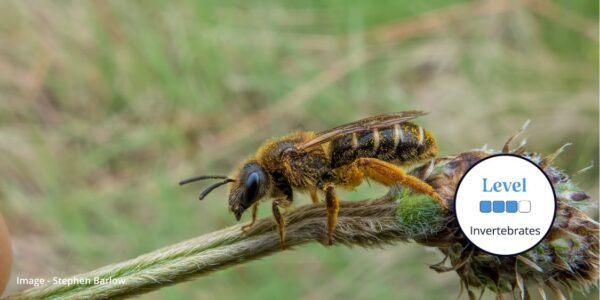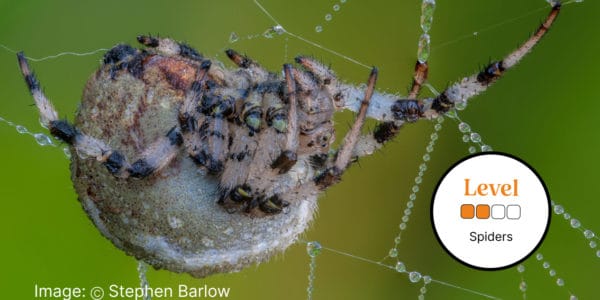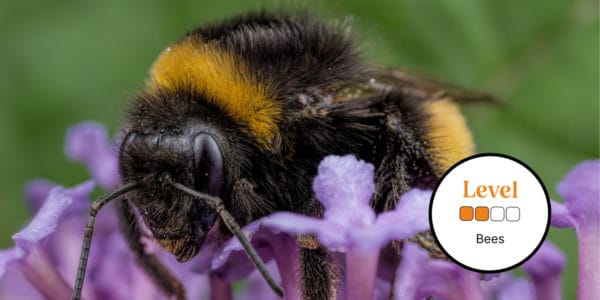This beginner to intermediate course introduces you to a selection of fascinating, but often overlooked invertebrates of the soil and litter layer.
Through richly illustrated talks and a field sampling session, we will learn how to recognise, find and record a range of more obscure species that can be found anywhere, from gardens to woodlands, moorlands to coast.
This course will include:
- The morphology and life histories of several invertebrate species of the soil and litter layer will be introduced.
- The key identification characteristics of several invertebrate groups will be described through extensive use of images of local species. The primary species to be discussed will include woodlice, harvestmen, bark flies, scale insects, false scorpions, flatworms, springtails, millipedes and centipedes.
- A field session where we will learn how to observe, catch and identify as many of these species as we can find.
- How to record what we’ve seen and look at methods to establish ongoing monitoring where required.
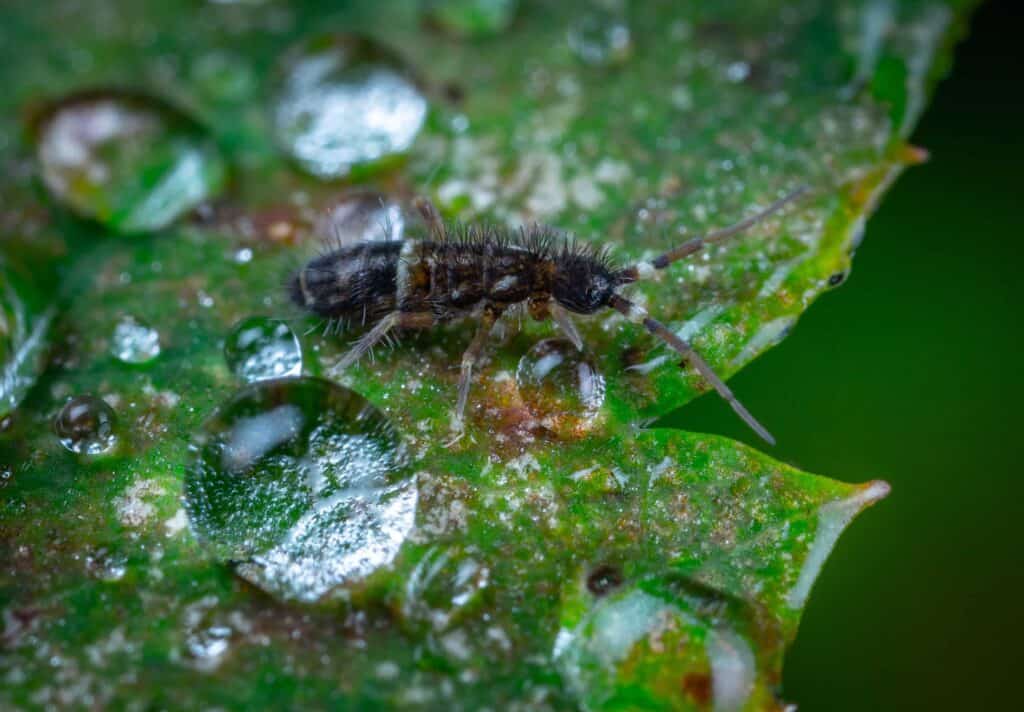
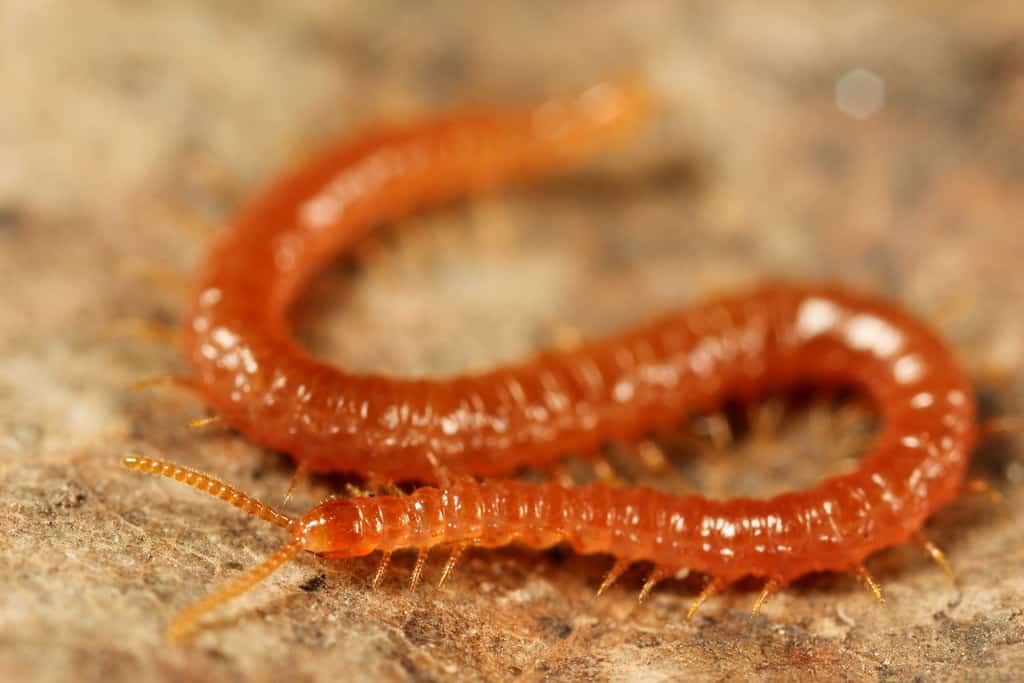
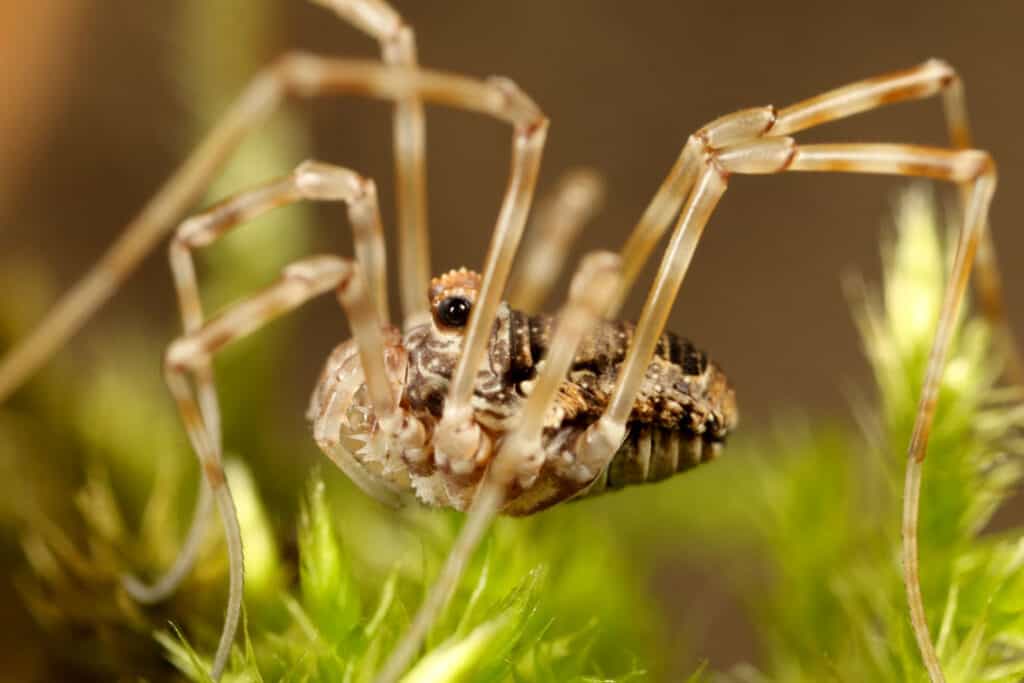
Read More
There are over 32,000 insect species known in Britain, many of which are familiar, easily recognised and well recorded. This is reflected by the Biological Records Centre supporting around 66 recording schemes for terrestrial insect groups. But there are also many lesser-known species which perhaps escape the eye and evade popular appreciation. Currently only 14 recording schemes consider such non-insect groups. On this course we will take a look and investigate what can be found when we get down to ground level. Our explorations will take a glimpse into the world of Woodlice, Harvestmen, Psocids, Coccids, False scorpions, Flatworms, Mites and Myriapods – among others.
On this course, you will be introduced to some of these slightly over-looked groups of insects and other invertebrates that would benefit from closer examination and recording. This is a great opportunity to raise the profile of species which are as beautiful, fascinating and important as any butterfly or beetle, but which may have skipped the attention of many wildlife enthusiasts.
We’ll look at why they are important and discuss some of the issues around why they might be under-recorded. Notably this will include the difficulty there might be in finding or identifying them, so we will highlight field skills for locating these species and flag up resources to aid in their recognition. Going ‘off-piste’ with these animals offers new insights into the real detail of the natural world. Their study offers many rewards, including expanded skills, new recording niches, fresh scientific breakthroughs and even a renewed enthusiasm for recording and natural history as a whole.
The wide scope and time limitations will not allow for microscopic examination of specimens.
By the end of the course, you will be able to:
- Understand the basic morphology and lifestyle of several invertebrate orders.
- Gain familiarity with the features diagnostic of these groups of animals and learn to recognise some specific local species.
- Have a better understanding of how to find and record these animals in the field and hopefully have experience of doing so on the day.
Who Should Attend?- Nature enthusiasts, students, rangers, early career consultants and ecologists. This course will suit anyone with a curiosity about the whole natural world, not just the larger headline grabbing species. It will enable you to take a closer look at the smaller, ground dwelling species and recognise animals and life histories that you may have previously been unaware of. It will also present a more complete picture of biodiversity for anyone interested in observing or monitoring the full fauna of a site.
Knowledge Level – Beginner to Intermediate. Level descriptors can be found on the following web-page: Framework and Course Level Descriptors .
Prior Knowledge- The course will suit an enthusiastic beginner to studying invertebrates, but will be of particular interest to those wishing to expand their existing knowledge from other groups. It may refresh an enthusiasm for recording and natural history by opening up new avenues for exploration.
PLEASE NOTE: There is no accommodation or meal facilities provided with this course. Refreshments (tea and coffee) will be available. If we are unable to reach viable numbers for this course, we will inform you of the course cancellation 4-5 weeks prior to the course run. We would recommend when purchasing accommodation and/or travel you should take out your own insurance.
Bookings will close if course capacity is reached.
Please email [email protected]g if you have any questions.
About the Tutor
Paul Richards
Paul Richards has nearly 40 years’ experience as a professional zoologist, curator and ecologist specialising in invertebrates. He currently works with a research team looking at Heliconius butterfly wing scale development and mimicry evolution at the University of Sheffield, where he has previously researched urban invertebrate diversity, ecosystem services and bird reproduction. In recent years he has undertaken commercial field ecology and worked for Sheffield & Rotherham Wildlife Trust as Ecological Monitoring Officer and helped to write the Sheffield State of Nature Report. For the 25 years prior to that he was Senior Curator of Natural History at Museums Sheffield.
Paul is Sorby Natural History Society recorder for Millipedes, Centipedes, Woodlice, Harvestmen, and Pseudoscorpions. His publications include the recently updated Field Studies Council guide to British Harvestmen and the new atlas of Dragonflies of the Sheffield area.
Example Timetable
Please arrive in time for the course to start promptly at 10:00am. The course will finish at 17:00pm.
- General introduction 10:00-10:30
- Introduction to Orders of selected ground invertebrates 10:30– 13:00 (Break around 11:30)
- Lunch. 13:00 – 14:00.
- In the field. 14:00 – 16:30
- Summary and questions 16:30 -17:00
Please Note:
- The order and duration of each element will be flexible in order to take advantage of weather conditions and species present.
- Lunch is not included so please bring your own food. Refreshments (tea and coffee) will be provided. There is a restaurant at Haddon Hall if you wish to use it.
What's Included
The course has been carefully created by expert tutors and educators to help you build your knowledge and apply it within the field surrounded by like-minded individuals.
The course includes:
- Classroom learning covering the theory of the topic
- Field excursions to apply new knowledge
- Expert tuition for which the Field Studies Council is renowned
- Clear objectives and progression
- Refreshments (tea/coffee)
You can rest assured that the absolute best content from an expert in environmental education will be provided. In choosing a Field Studies Council course, you will be joining thousands of people who learn with us each year.
Bursaries and Subsidies
Student Discount
This course is eligible for a student discount. If you are a current student, please use discount code BioStudent20 at checkout for 20% off all Biodiversity courses.
Natural History Bursaries
There are a number of natural history bursaries available to help with the cost of your course. To find out if you and your chosen course are eligible, read more here.
Before You Attend
What to Bring
- Notebook and pencil
- Lunch and refreshments
- Sensible footwear and clothing for being outdoors in any weather
- Small bag to carry personal items
If you have them:
- A hand lens or a pair of binoculars to use in reverse
- Gardening gloves and a trowel (useful but not essential)
Recommended Literature
The following guides are not essential for the course, but have been suggested by the tutor. When you book this course, you will receive a discount code for the Field Studies Council recommended guides below.
- Harvestmen of the British Isles
- Illustrated Key to the British False Scorpions (pseudoscorpions)
- Woodlouse Name Trail
- Key to the Identification of British Centipedes
- Illustrated Key to the Families of British Springtails
- A Key to the Major Groups of British Terrestrial Invertebrates
There will be a member of staff with first aid training and access to a first aid kit on site. If you have special medical or access requirements, please let us know as soon as possible so we can plan the course.
Opportunities to attend this course
-
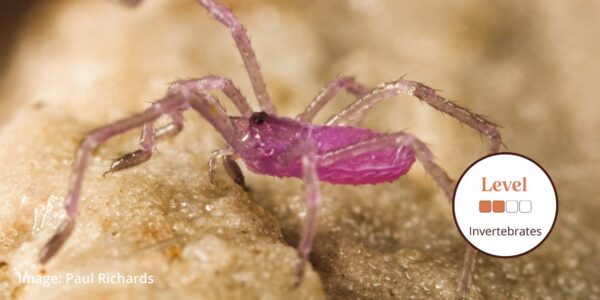
Sat 21, September 2024 10:00 - 17:00
The Venue is unable to offer accommodation with this course, please book local accommodation if you require overnight stays and ensure you take out the appropriate insurance.
No current dates for this course? Click here to view all the upcoming Natural History courses.
Progress Your Learning
This is a training course from the Field Studies Council, delivered by expert tutors with an approachable learning style. After attending this course, you may like to progress your learning with further relevant courses or branch out into other areas of natural history. The Field Studies Council offers both online and in-person courses, so you can choose the learning style that suits you best.
The course gives you the opportunity to immerse yourself in a new subject and acquire novel skills. Our online portal gives you time to study at your own pace and fit the lessons around your own schedule.
If you have any questions about our courses, please check out our Frequently Asked Questions or email [email protected].
Group Bookings Made Easy
If you have a group of 10 or more individuals wanting to complete one of our courses, our team are available to discuss your options – from discounts to private team courses. Find out more!
You can rest assured that the absolute best content from an expert in environmental education will be at your fingertips. In choosing a Field Studies Council course, you will be joining thousands of people who learn with us each year.

